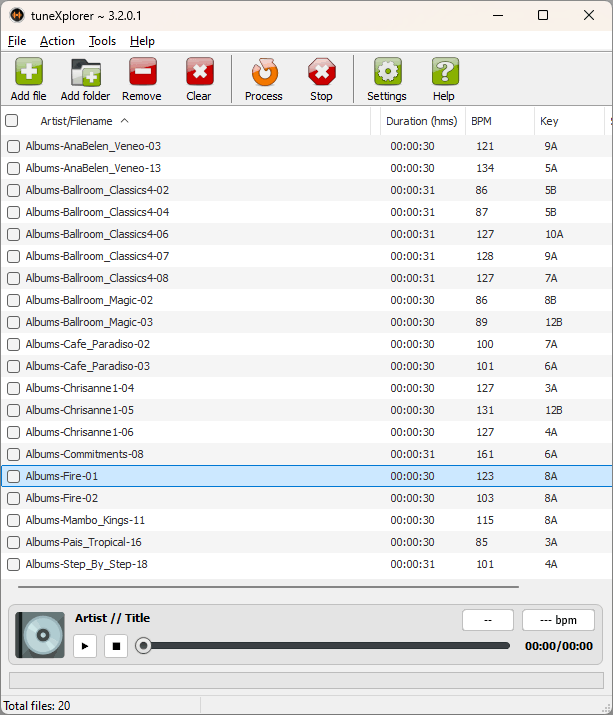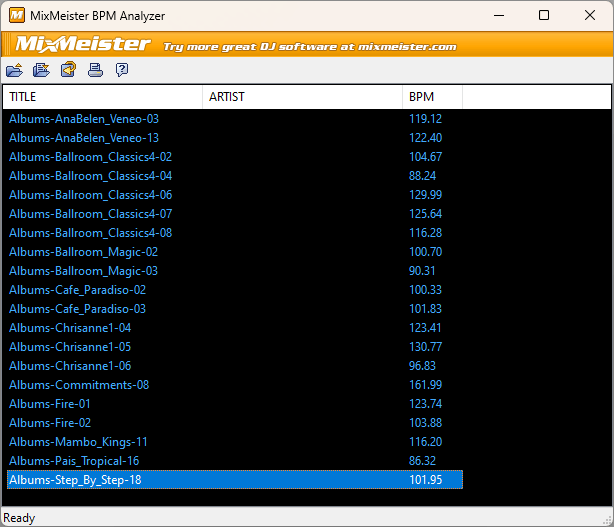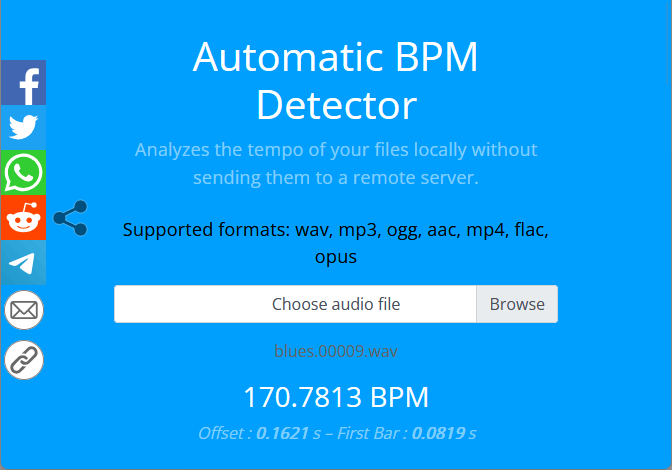
In musical terminology, the tempo of a composition refers to the speed or pace at which it is performed. It is typically measured in beats per minute (BPM) and can significantly impact the overall ambience and emotional tone of a musical composition. It is crucial to determine the correct tempo for a number of reasons, particularly in the context of music mixing.
While there are many software programs that claim to accurately determine the tempo of a musical composition, a trained ear remains the most reliable method for determining tempo. A trained ear can identify subtle nuances in the music that a program might miss, such as fluctuations in tempo or changes in rhythm. However, programs can be useful for quickly and accurately determining the tempo of a piece of music, especially for inexperienced musicians or those who are short on time.
1 How we evaluated tempo analyzers
When choosing a tempo estimator app, the first priority is, of course, the accuracy of the result. In addition to an exact match, we will also count results that are multiples of 2, which are easy to adjust. The processing speed is of secondary importance, but can still be a nice bonus.
I am very pleased that Music information retrieval (MIR) has received a lot of attention lately. This area of research is used by businesses and scientists to categorize, process, and even create music. To compare algorithms, open datasets are created that allow you to test the detection of tempo, beats, keys, genre, and other metrics. One of the most famous datasets is GTZAN. This dataset contains 1000 songs, each of which is 30 seconds long. There are 10 different genres in the dataset, each of which contains 100 songs. The genres are as follows: blues, classical, country, disco, hip-hop, jazz, metal, pop, reggae, rock. Thus, GTZAN is an excellent benchmark for testing software tempo analyzers. In addition, the Ballroom and GiantSteps datasets were used in the testing, but were not taken into account in the final result.
2 tuneXplorer - 85%
This is the new and improved BPM analyser from Abyssmedia. It's been a big hit since it first launched and has been getting great feedback from users. A large collection of samples with manual annotation helped to improve the algorithms and improved the accuracy and speed of their work. The hybrid algorithm also lets you figure out the key of a musical composition with a pretty high chance of success, second only to the market leader, Mixed in Keys. The great thing about this product is that it's super fast. There's nothing else on the market that can process a thousand songs in less than a minute. Saving the found BPM values is possible both inside audio tags and as a CSV file. The main problem of the algorithm is the so-called octave error, when the found BPM value is a multiple of the real one. Alas, it is not yet possible to solve this problem in the traditional way. An older version of this product is available as a free BPM Counter, but its accuracy is significantly lower, which prevents us from including it in this list.

3 MixMeister BPM Analyzer - 70%
I've got an older version and I can't download a new trial version from the developer's website. They're willing to pay for something that might not even work, which I don't think is a good idea. I'd always thought their algorithm was pretty reliable, but when I tested it on the public GTZAN dataset, I discovered it wasn't quite as accurate as I'd assumed. I'm sorry to say that I was disappointed with the result. I found that almost all online services and free alternatives calculate BPM more accurately. Unfortunately, multithreaded processing isn't supported, so the speed of work is very slow. It's also missing support for modern audio formats, which is a shame as today it is a good idea to support formats with lossless compression. On a positive note, you can save the result as a text file, which can then be imported into a spreadsheet.

Since there is no download link on the official website, you can find the version used in the review on software catalogs, for example, on Softonic.
4 Automatic BPM Detector - 71% (approximately)
No comparative review can do without an online service today, and ours will be no exception. I should mention upfront that the main drawback of this service is that you can't batch process. You have to upload each file individually. Because of this, I didn't spend time processing all 1,000 test tracks. Instead, I selected audio from different genres. So, the accuracy estimate is pretty rough. This automatic BPM detector uses a simple algorithm proposed by Joe Sullivan, which works well on dance music but not so much on more complex compositions. Other algorithms are more consistent in terms of accuracy across different genres. It's worth mentioning that this service doesn't require you to upload your tracks to a server. Instead, it performs all calculations locally in your browser. This makes it more private but also slower. You also can't save BPM in tags, so you have to do that manually using the tag editor or store the calculated values in a separate table.

5 Final words
It seems that the automatic BPM detection is pretty good, but we can make it even better by setting the expected BPM range. In this case, we're looking at a 10 percent increase in the accuracy of estimating the tempo of dance music. If you're a pro, you probably already have built-in analyzers in your DJ console or DAW. But for amateurs, these tools can be a great find. In this article, we've looked at the three best BPM analysers for Windows computers. This time, tuneXplorer came out on top and it's still our top pick for now, until we run the next test, where we'll add some neural network-based analysers. We've already got one of them training on our server. We'd love to hear your thoughts when you get a chance!
